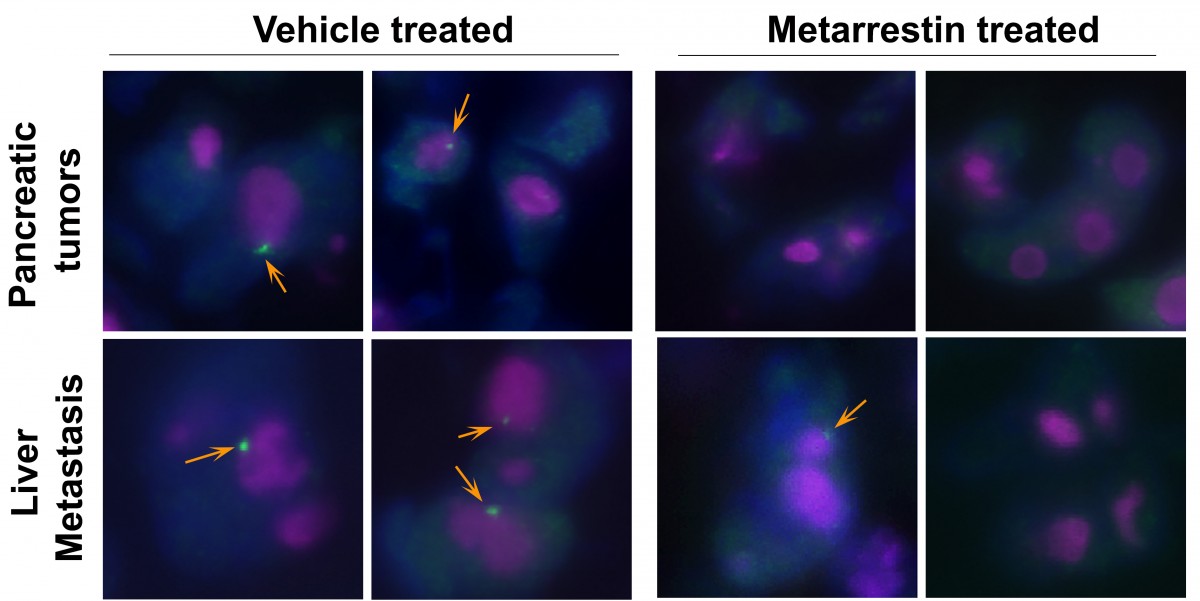IRP Scientists and Collaborators Develop Potential New Approach to Stop Cancer Metastasis
Researchers have identified a compound that blocks the spread of pancreatic and other cancers in various animal models. When cancer spreads from one part of the body to another in a process called metastasis, it can eventually grow beyond the reach of effective therapies. Now, there is a new plan of attack against this deadly process, thanks to scientists at the National Institutes of Health, Northwestern University and their collaborative research partners.
The team collaborated to identify a compound, which they named metarrestin, that stopped tumor metastasis in multiple animal models. Mice treated with metarrestin also had fewer tumors and lived longer than mice that did not receive treatment. These results were published May 16, 2018 in Science Translational Medicine.
“Many drugs are aimed at stopping cancer growth and killing cancer cells,” said co-author Juan Marugan, Ph.D., group leader of the NIH’s National Center for Advancing Translational Sciences (NCATS) Chemical Genomics Center. “However, there is no single approved drug specifically aimed at treating metastasis. Our results show metarrestin is a very promising agent that we should continue to investigate against metastasis.”

The compound metarrestin breaks down a component of cancer cells called the perinucleolar compartment (PNC). PNCs are found only in cancer cells, and in a greater number of cells in advanced cancer. In the four panels on the left, the green dots indicate the presence of PNCs in untreated pancreatic and metastatic liver tumors. On the right, treatment with metarrestin reduced the prevalence of PNCs.
This page was last updated on Friday, January 21, 2022